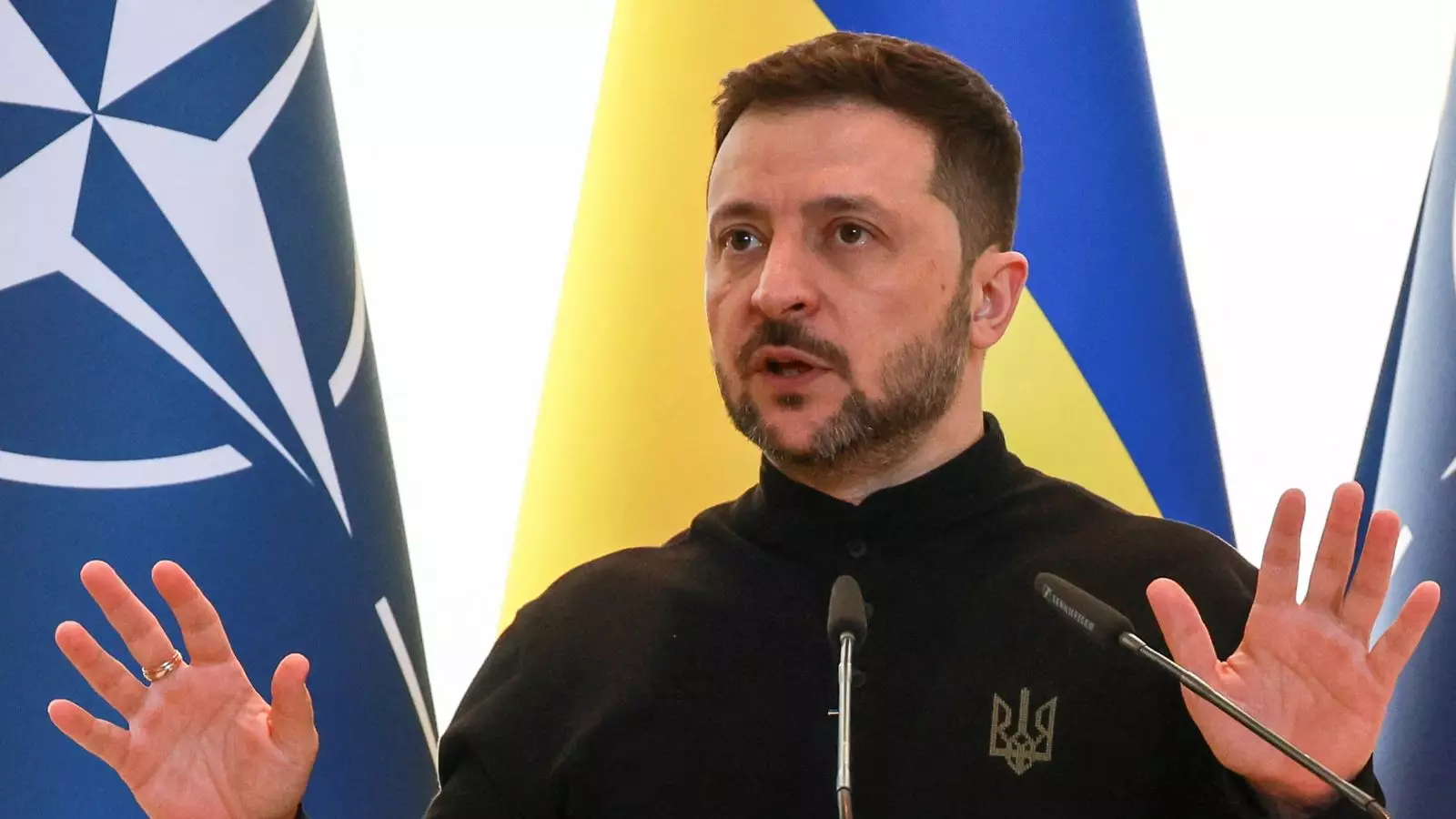In a world battered by conflicts and sociopolitical upheaval, the recent phone call between Sir Keir Starmer and Ukraine’s President Volodymyr Zelenskyy serves as a stark reminder of the fragile nature of diplomacy amidst war. The discussion ostensibly centered on ending Russia’s “brutal war” in Ukraine, yet the layers of this conversation reveal a complex web of mistrust and distrust. As both leaders exchanged niceties on Easter Monday, with Starmer reiterating his “iron-clad” support for Ukraine, one must question whether the gestures of goodwill can overshadow the underlying reality. Can real peace negotiations emerge from a foundation riddled with deception and hostility?
The Echoes of a Failed Ceasefire
The mention of the 30-hour Easter truce is particularly poignant, as it starkly illustrates the futility of declared ceasefires in a geopolitical landscape marred by breach and betrayal. President Zelenskyy’s claim that the Russian military violated this ceasefire more than 2,000 times is not merely a statistic; it is a testament to the grim persistence of a conflict that seems more entrenched than ever. The illusion of a ceasefire is a strategic maneuver, one that Russia has employed time and again, masking their expansionist ambitions with a playbook of half-hearted truces and empty promises. The world watches as both sides escalate their rhetoric while Russia continues its military aggression under the guise of negotiation—a tactic that is both cynical and alarming.
Putin’s Disingenuous Dialogue
Vladimir Putin’s recent proposal for bilateral talks might initially appear as a step toward de-escalation. However, history teaches us to tread cautiously when interpreting the intentions of a leader who has consistently exhibited profound disregard for the truths of diplomacy. The Russian president spoke of a “positive attitude” towards a truce but has repeatedly backtracked on commitments once the international spotlight fades. The frequency with which Russia toys with the notion of talks as a political theater raises questions about their sincerity. As long as Putin sees military strength as the ultimate leverage, any calls for negotiation remain suspect at best.
Western Diplomacy on Shaky Ground
In a climate rife with cynicism and skepticism, political leaders in the West seem to balance precariously between supporting Ukraine and navigating the complex terrain of global diplomacy. The mention of former U.S. President Donald Trump’s attempts to broker a peace deal further complicates matters. His comments about the potential for “big business” post-conflict reflect not just an opportunistic view of war but also highlight the transactional nature of international relations today. In this maze of power plays, how can genuine peace be achieved when leaders are more concerned about their political fortunes than the well-being of those they govern?
Propaganda at Play
Beyond the immediate concerns of military engagements and ceasefire violations lies the insidious role of propaganda. The narratives produced by both Russia and Ukraine serve more than just informational purposes; they manipulate public perception and cultivate a sense of righteousness. As Zelenskyy’s administration accuses the Kremlin of failing to uphold its promises, the question looms: Are these not the very tactics employed by both sides to bolster their positions on the global stage? When narratives become weapons, the quest for peace is increasingly fraught with contradictions and hypocrisy.
A Call for Authenticity
As discussions fluidly glide between promises of peace and relentless conflict, one thing becomes abundantly clear: the need for authentic engagement is paramount. Genuine dialogue must be underpinned by respect, transparency, and accountability. Both parties must recognize that the art of negotiation is not just about political posturing or maintaining a façade. True reconciliation requires recognizing the shared humanity that, despite the clamor of war, remains ever-present. If leaders continue to operate within the confines of blame and provocation, the cycle of conflict will perpetuate—casting shadows over the prospects for a hopeful resolution.
In this political climate, where the stakes rise and fall with every announcement, the international community must remain vigilant and discerning. With every missed opportunity for dialogue, the toll of human suffering grows, and the prospects for a sustainable future diminish. The era of political gamesmanship must give way to authentic diplomacy rooted in a commitment to peace—one that transcends the superficiality of empty promises and dwindles the shadows of conflict once and for all.


Leave a Reply